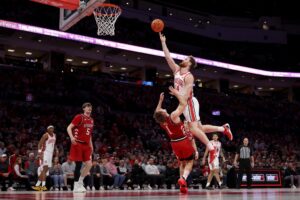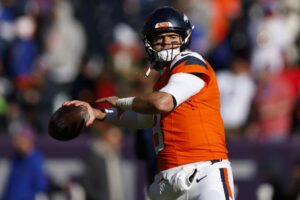Last year’s Las Vegas Grand Prix, featuring the best Formula 1 drivers in the world, created an economic impact of $934 million on the area. The third iteration of the F1 series race was run last Saturday, and the race is benefiting sportsbooks all over the city.
F1 Gaining Popularity in Vegas
It’s no secret that tourism in Sin City has been lagging this year, with many citing the high costs of food, lodging, and entertainment. However, others believe the issue is more serious and deeply tied to the proliferation of casinos across the nation and the easy access to sports betting via handheld devices in most states.
Resort operators can always choose to make tourism more affordable by dropping prices, but regaining Las Vegas’ gaming exclusivity is like the proverbial horse that has left the barn.
However, one bright spot has been the return of the F1 auto racing series to Las Vegas, where carbon-fiber bullets, topping speeds of 200 miles per hour, navigate the asphalt of Sin City, including the famed Strip.
The third Las Vegas Grand Prix was run last Saturday, and although it will be months before we know the extent of the economic boon that the event provided the city, we do know that in its inaugural race in 2023, sportsbooks like BetMGM generated more than three times the handle of any other event in Formula 1’s history. Last year, that number doubled.
F1 Revs Up Tourism
As for the tourism aspect, deep-pocketed visitors came in throngs to see the F1 spectacle, a reported 300,000 in each of the two years.
Event organizers are hoping that the number remains consistent, although last year the race generated $45 million in tax revenue for the state, well below the $77 million it created in its inaugural year of 2023.
However, the surge in race visitors has a significant impact on the city and state economy, providing much-needed stimulus after the disappointing 2025 tourism year.
“Visitor spending not only supported businesses in the leisure and hospitality sector (e.g., hotel personnel, restaurant workers, and retail merchants), it also rippled through the economy, supporting suppliers of major industries and neighborhood businesses such as grocery stores, medical establishments, and automobile shops when direct wages and salaries are spent throughout the community,” event officials said.







